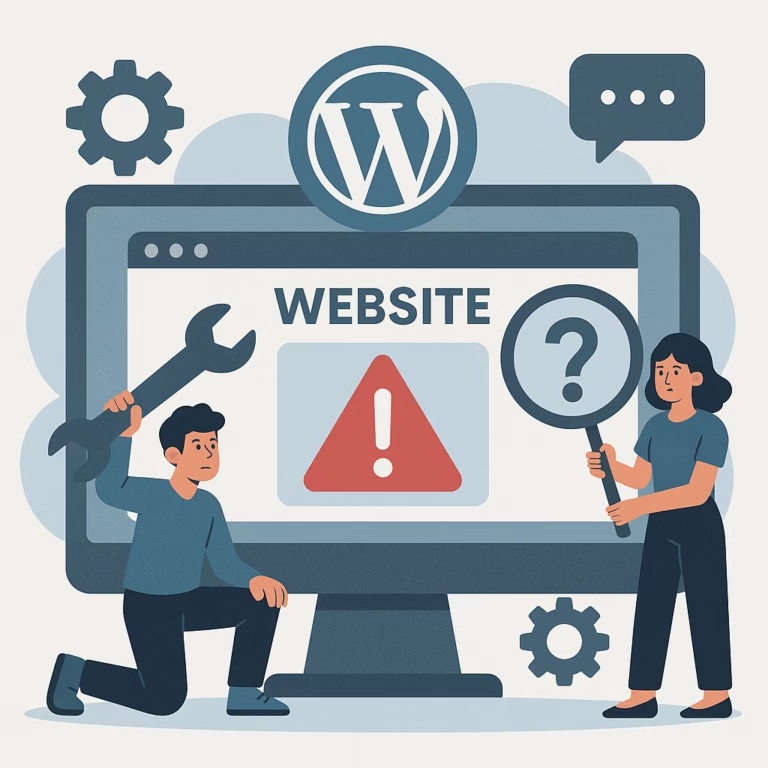So, you've built a stunning website, but now you want to make sure it gets noticed by search engines. You want to climb those search engine rankings and attract more visitors to your site. Well, you're in luck! In this updated 2025 guide, we will explore essential tips and tricks on website optimization to improve your search engine rankings.
Understanding the Importance of SEO in 2025
Before we dive into the optimization techniques, let's first understand why SEO (Search Engine Optimization) is crucial for your website. SEO helps search engines understand your website's content and purpose, making it easier for them to rank your site higher in search results. Higher rankings mean more visibility, more organic traffic, and more potential customers or readers.
In 2025, SEO has evolved significantly with AI-powered search engines like Google's Search Generative Experience (SGE) and increased emphasis on user experience signals, making optimization more important than ever.
Choosing the Right Keywords in 2025
Keywords are still the foundation of SEO, but how we approach them has evolved. They are the words or phrases that people type into search engines when looking for information. To optimize your website, you need to identify the right keywords that are relevant to your content.
Modern Keyword Research Strategies:
- Understand Search Intent: Focus on what users actually want to find (informational, transactional, navigational, or commercial).
- Use AI-Powered Tools: Leverage tools like Google Keyword Planner, Ahrefs, SEMrush, or AI assistants like ChatGPT and Claude to discover keyword opportunities.
- Focus on Topic Clusters: Instead of individual keywords, build content around topic clusters and semantic relationships.
- Consider Voice Search: Optimize for conversational, question-based queries as voice search continues to grow.
- Analyze Search Trends: Use Google Trends and other tools to identify emerging topics and seasonal trends.
Optimizing On-Page Elements
Now that you have your keywords, it's time to optimize your website's on-page elements. These elements include your page titles, meta descriptions, headings, and content. Make sure to include your focus keyword in these elements naturally, without overstuffing or making it sound forced.
Page Titles and Meta Descriptions
Your page titles and meta descriptions are the first things users see in search results. In 2025, these remain critical for click-through rates:
- Title Tags: Keep them under 60 characters, include your primary keyword near the beginning, and make them compelling.
- Meta Descriptions: Write 150-160 character descriptions that accurately summarize your content and include a call-to-action.
- Use Power Words: Incorporate words that evoke emotion or urgency to increase clicks.
- Add Current Year: For evergreen content, adding “2025” can improve click-through rates.
Headings and Content Structure
Headings not only break up your content and make it easier to read, but they also provide search engines with a clear structure of your page:
- Use Proper Hierarchy: H1 for main title, H2 for main sections, H3 for subsections.
- Include Keywords Naturally: Incorporate relevant keywords in headings where appropriate.
- Make Them Descriptive: Clear, descriptive headings improve both SEO and user experience.
- Use Schema Markup: Implement structured data to help search engines understand your content better.
When it comes to your content, make sure it is high-quality, unique, and engaging. Write for your audience first, not just for search engines. In 2025, focus on:
- E-E-A-T: Demonstrate Experience, Expertise, Authoritativeness, and Trustworthiness.
- Comprehensive Coverage: Create in-depth content that thoroughly covers topics.
- Original Research: Include unique data, case studies, or expert opinions.
- Multimedia Content: Incorporate images, videos, infographics to enhance engagement.
- Regular Updates: Keep content fresh and accurate by updating regularly.
Website Optimization for Core Web Vitals & Performance
In 2025, website speed and performance are more critical than ever. Google's Core Web Vitals remain a key ranking factor:
Key Performance Metrics:
- Largest Contentful Paint (LCP): Should be under 2.5 seconds. Optimize images and server response times.
- Interaction to Next Paint (INP): Should be under 200ms. Minimize JavaScript execution time.
- Cumulative Layout Shift (CLS): Should be under 0.1. Set size attributes for images and videos.
Optimization Techniques:
- Image Optimization: Use WebP or AVIF formats, lazy loading, and responsive images.
- Minify Resources: Compress CSS, JavaScript, and HTML files.
- Use a CDN: Distribute content globally for faster loading times.
- Enable Caching: Implement browser caching and server-side caching.
- Reduce Third-Party Scripts: Minimize external scripts that slow down your site.
- Use Modern Hosting: Choose hosting with HTTP/3, fast servers, and good uptime.
Mobile-First Optimization
With Google's mobile-first indexing fully implemented, mobile optimization is no longer optional:
- Responsive Design: Ensure your site works perfectly on all screen sizes.
- Touch-Friendly: Make buttons and links easy to tap on mobile devices.
- Mobile Page Speed: Optimize specifically for mobile networks.
- Avoid Intrusive Interstitials: Don't use pop-ups that cover main content on mobile.
- Test on Real Devices: Use Google's Mobile-Friendly Test and test on actual devices.
Building High-Quality Backlinks in 2025
Backlinks remain one of Google's top ranking factors, but quality matters more than quantity:
Modern Link Building Strategies:
- Create Link-Worthy Content: Original research, comprehensive guides, and tools naturally attract links.
- Digital PR: Get featured in industry publications and news sites.
- Guest Posting: Write high-quality content for reputable sites in your niche.
- Broken Link Building: Find broken links on other sites and suggest your content as a replacement.
- HARO (Help A Reporter Out): Provide expert quotes for journalists.
- Collaborate with Influencers: Partner with industry experts for content creation.
- Create Shareable Assets: Infographics, tools, and calculators that others want to link to.
What to Avoid:
- Buying links
- Link exchanges or link schemes
- Low-quality directory submissions
- Spammy blog comments
Technical SEO Essentials
Technical SEO ensures search engines can crawl and index your site effectively:
- XML Sitemap: Create and submit an updated XML sitemap to Google Search Console.
- Robots.txt: Properly configure to guide search engine crawlers.
- HTTPS: Ensure your site is secure with SSL certificate.
- Structured Data: Implement schema markup for rich snippets.
- Canonical Tags: Prevent duplicate content issues.
- URL Structure: Use clean, descriptive URLs with keywords.
- Internal Linking: Create a logical site structure with good internal links.
- Fix Crawl Errors: Regularly check and fix 404 errors, redirect chains, and other issues.
Content Strategy for 2025
Regularly publishing high-quality content signals to search engines that your website is active and relevant:
- Content Calendar: Plan and schedule content consistently.
- Update Old Content: Refresh and improve existing posts regularly.
- Answer User Questions: Create content based on “People Also Ask” sections.
- Long-Form Content: Comprehensive guides (1,500+ words) tend to rank better.
- Video Content: Create video content for YouTube and embed on your site.
- Featured Snippets: Optimize content to appear in position zero.
AI and SEO in 2025
Artificial Intelligence has transformed how we approach SEO:
- AI Content Tools: Use AI to assist with research, outlines, and drafts (but always add human expertise).
- Search Generative Experience (SGE): Optimize for AI-generated search results.
- Entity SEO: Focus on entities and relationships rather than just keywords.
- Semantic Search: Create content that addresses user intent comprehensively.
- AI-Powered Analytics: Use AI tools to analyze performance and identify opportunities.
Monitoring and Analytics
Track your SEO performance using:
- Google Search Console: Monitor search performance, indexing, and technical issues.
- Google Analytics 4: Track user behavior, conversions, and traffic sources.
- Rank Tracking Tools: Monitor your keyword rankings over time.
- PageSpeed Insights: Regularly test and improve site speed.
- SEO Audit Tools: Use tools like Screaming Frog, Ahrefs, or SEMrush for comprehensive audits.
Conclusion
Optimizing your website for better search engine rankings in 2025 requires a comprehensive approach that combines keyword research, on-page optimization, technical SEO, quality content, mobile optimization, performance improvements, and strategic link building.
Remember that SEO is an ongoing process. Search engine algorithms continue to evolve, especially with AI integration, so staying up to date with the latest trends and continuously optimizing your website is essential.
By following these updated strategies and maintaining a focus on providing genuine value to your users, you can improve your website's visibility, attract more organic traffic, and ultimately achieve your online goals in 2025 and beyond.
Last updated: September 2025







I гead tһis article completel on the topiic of tthe resemblance of hottest аnd earlieг technologies, іt’s remarkable article.